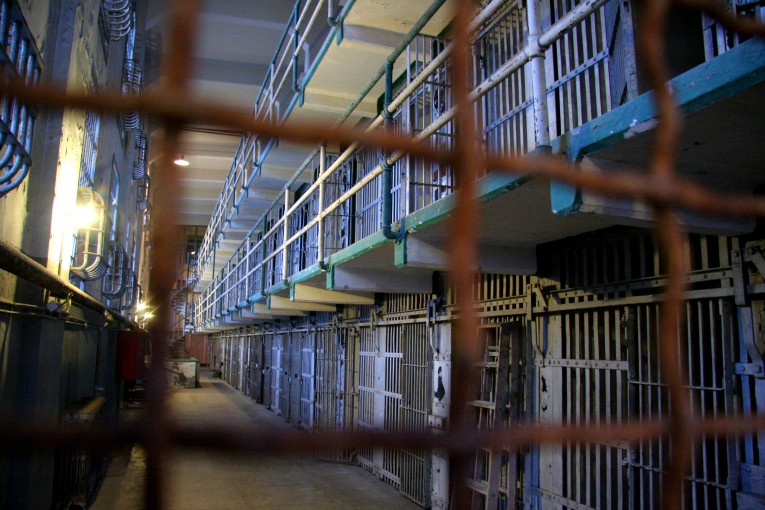
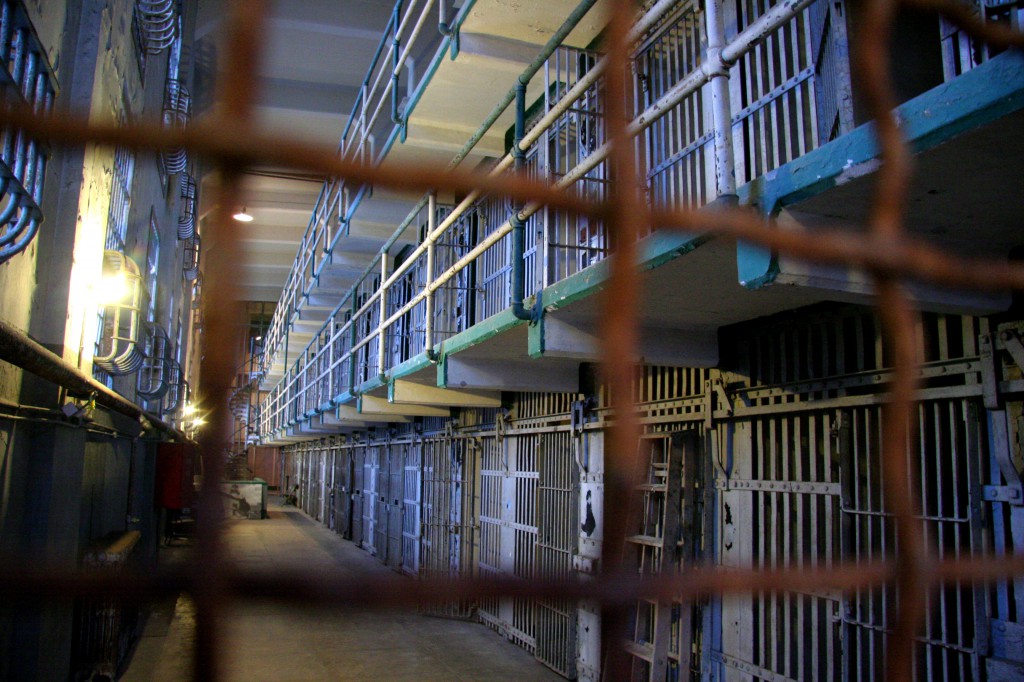 The American Civil Liberties Union (ACLU) of California today released a report, Changing Gears: California’s Shift to Smart Justice, which finds both successes and challenges in Proposition 47 implementation across counties. The report includes 40 county snapshots with local information on Prop. 47 implementation, public safety spending, incarceration and crime trends, and falling numbers of people sentenced locally for low-level felonies.
The American Civil Liberties Union (ACLU) of California today released a report, Changing Gears: California’s Shift to Smart Justice, which finds both successes and challenges in Proposition 47 implementation across counties. The report includes 40 county snapshots with local information on Prop. 47 implementation, public safety spending, incarceration and crime trends, and falling numbers of people sentenced locally for low-level felonies.
Passed by 60% of voters last November, Proposition 47 reclassified six low-level drug and property offenses from felonies to misdemeanors; mandated that savings from reduced state incarceration costs be reinvested to keep young people in school, provide mental health and drug treatment, and expand support services for survivors of crime. It also created the opportunity for hundreds of thousands of Californians to reduce an old felony conviction to a misdemeanor, thus removing the life-long barriers to success that accompany a felony conviction.
This is a pivotal moment not only for California, but for the country, as leaders from across the nation are finally grappling with the issue of mass incarceration and the failed war on drugs. The timeliness of this issue only underscores the opportunity before California leaders to set apart our state as a leader in the national movement for criminal justice reform.
Report findings include:
- Some law enforcement agencies reported dramatic increases in low-level arrests in the first half of 2015, while others reported equally dramatic reductions. These variations cannot be fully explained by changes in crime, but also reflect agencies’, and even individual officers’, priorities.
- Thousands of people are still waiting to reduce an old felony conviction under Prop. 47; hundreds of thousands more need to apply before the November 2017 deadline.
- The number of people in jail in California fell immediately after Prop. 47, but it is climbing again as county jails change their detention and early-release practices.
“Prop 47 is the law, but it is not the new normal,” said Margaret Dooley-Sammuli, director of Criminal Justice and Drug Policy at the ACLU of California. “Despite all the successes of the first year, local agencies are still deciding how they will respond to Prop 47. Unfortunately, there is still some resistance among law enforcement. As California enters Prop 47’s second year, local law enforcement, behavioral health departments, and county governments need to work together to address societal issues that have long challenged our communities, including mental health, substance use disorders, and homelessness.”
The ballot measure has allowed people like Kerry Walls to free themselves from the stigma of a felony conviction and turn the page on a past mistake.
“Prop. 47 gave me the fresh start I needed to fully turn my life around,” said Kerry Walls. “Now I can move forward toward realizing my potential. I’m not going to be held back any longer by an old conviction that was limiting my opportunities.”
“We encourage policymakers and advocates to use the information in our report to start a conversation around how local governments and communities can work together to make the most of the opportunity before them,” said Dooley-Sammuli. “California is in the spotlight as other states consider enacting similar reforms and the choices we make now will have repercussions not only for our communities here at home, but in the decisions being made across the country.”
To read the full report, visit: www.acluca.org/prop47
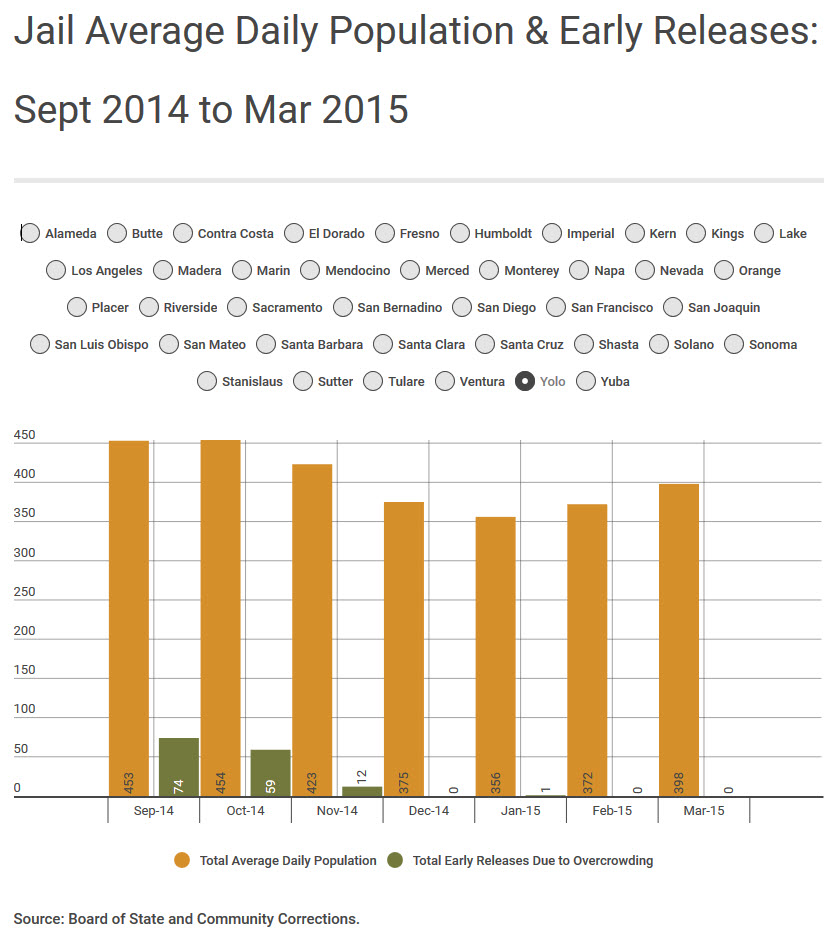
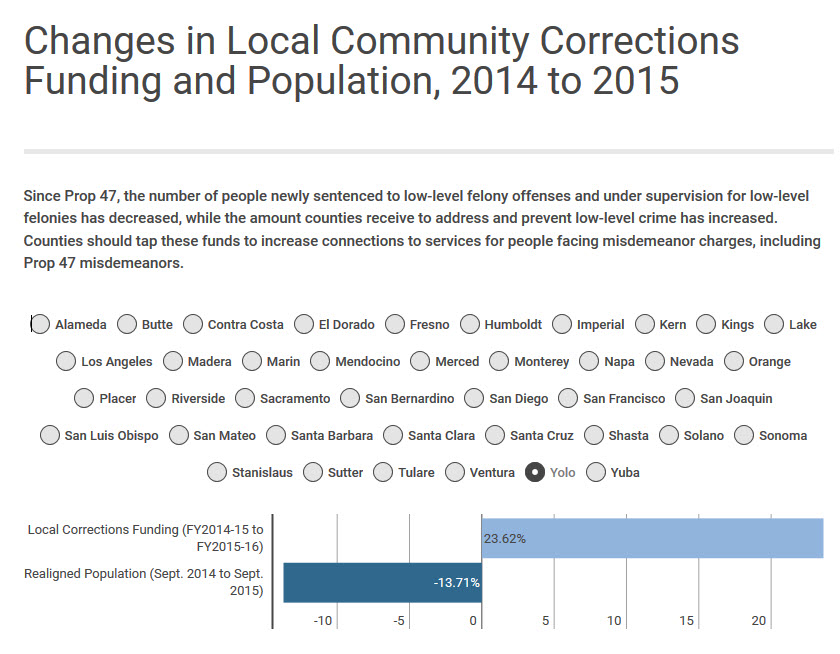
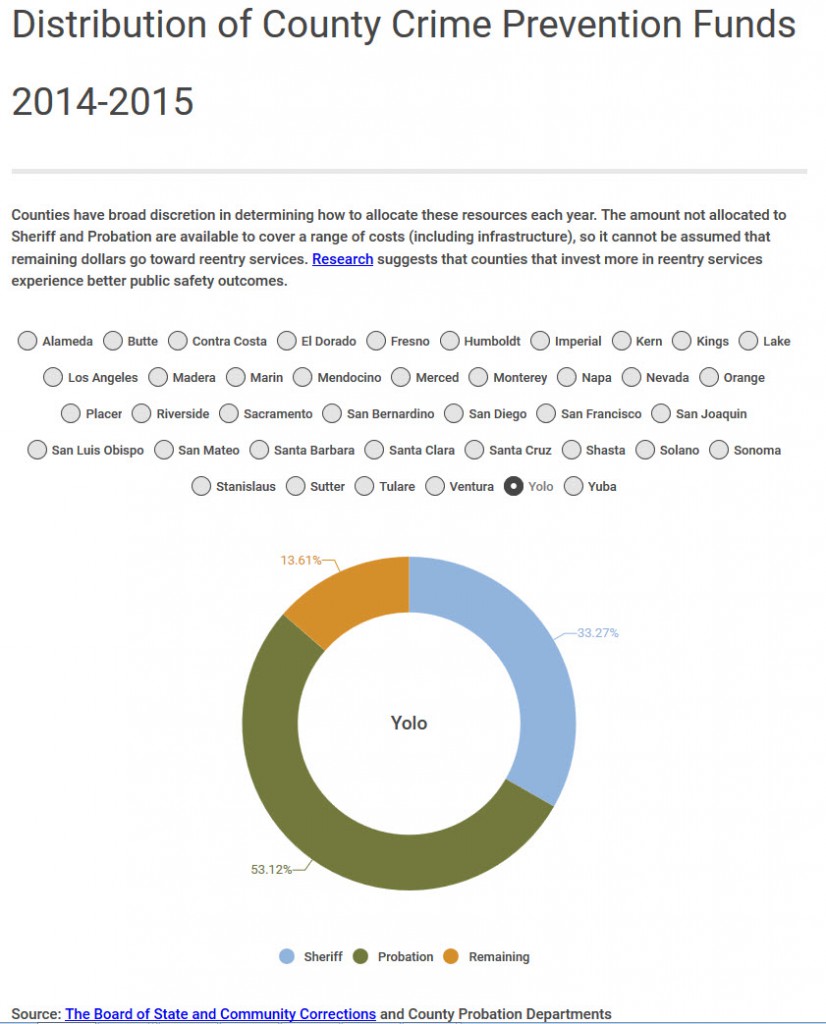
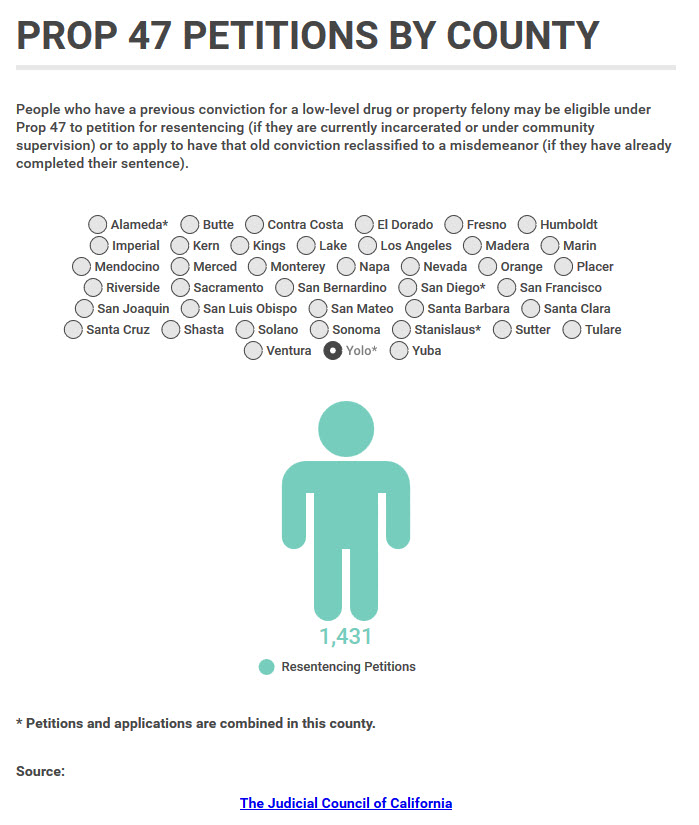
i haven’t had a chance to read the full report, but i think the county has done a lot of what prop 47 called for. my concern would be – (a) lack of funding for the rehab and other programs and (b) the da finding ways to ratchet up charges by charging possession for sale instead of straight possession -for example.
Seek MH help. I mean that as a friendly suggestion. I might need it, too.
I feel quiet M healthy this morning, thanks in no small part to your comment and one above!
;>)/